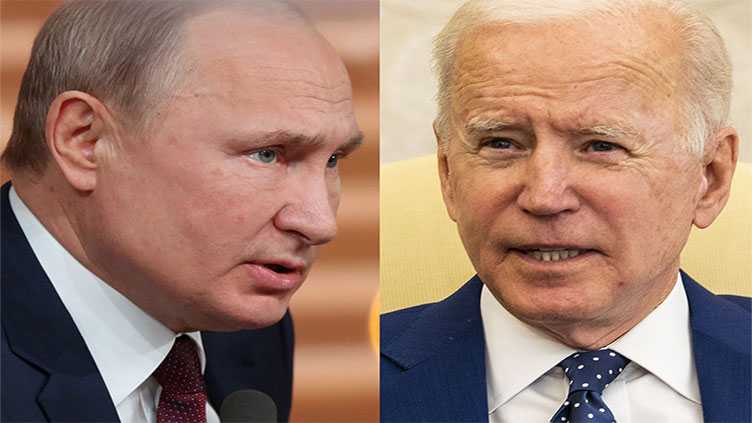Biden and Putin trade warnings over Ukraine, but vow diplomacy

World
Biden warned Putin of a tough US response to any invasion of Ukraine.
WASHINGTON (AFP) - President Joe Biden on Thursday warned his Russian counterpart Vladimir Putin of a tough US response to any invasion of Ukraine, while the Kremlin leader said anti-Moscow sanctions would be a "colossal mistake."
After a 50 minute phone call -- their second in just over three weeks -- both presidents indicated support for further diplomacy on the tense standoff between Russia and Western-backed Ukraine.
Putin was "pleased" overall with the talks, foreign policy adviser Yury Ushakov told reporters. A senior US official, who spoke on condition of anonymity, said the tone "was serious and substantive."
But there was no disguising the depth of disagreement -- or the dangerously high stakes on the fringes of eastern Europe -- ahead of in-person negotiations between high-ranking Russian and US officials on January 10.
Biden "made clear that the United States and its allies and partners will respond decisively if Russia further invades Ukraine," Press Secretary Jen Psaki said in a statement.
Ushakov, referring to Washington s repeated threats of economic sanctions as a response to a Ukraine attack, said this would be "a colossal mistake. We hope this will not happen."
Ushakov also said that Russia is looking for a concrete "result" in the January talks in Geneva, while the White House said it, too, wanted action -- de-escalation by Russia s massive military presence on the Ukrainian border.
"President Biden reiterated that substantive progress in these dialogues can occur only in an environment of de-escalation rather than escalation," Psaki said.
- Troops and demands -
Washington and its European allies accuse Russia of threatening former Soviet territory Ukraine with a new invasion. Some 100,000 Russian troops are massed near the border of the country, where Putin already seized the Crimea region in 2014 and is accused of fomenting a pro-Russian separatist war which erupted that same year in the east.
Moscow describes the troop presence as protection against expansion of NATO, although Ukraine has not been offered membership in the military alliance.
Earlier this month, the Russians issued a sweeping set of demands, including guarantees that NATO not expand and a bar on new US military bases in former territories of the Soviet Union.
The United States rejects what it calls a bid by the Moscow to dictate independent countries futures.
In a readout after the call, the Kremlin stressed that Biden told Putin that US offensive weapons would not be deployed in Ukraine. The White House, however, said Biden merely reaffirmed existing policy.
"President Biden made clear that the US is continuing to provide defensive security assistance to Ukraine and is not introducing offensive strike weapons. This was not a new commitment," a US official told AFP.
And US officials repeated warnings of blistering economic sanctions backed both by Washington and EU capitals if Russia does attack Ukraine further.
Biden "laid out two paths," a senior administration official said. "One is a path of diplomacy... and the other path is more focused on deterrence, including serious costs."
- US support for Ukraine -
The January talks will see Russian officials sitting down separately with negotiators representing the United States, NATO and the regional OSCE security forum, which also includes the United States.
Russia s delegation will be led by Deputy Foreign Minister Sergei Ryabkov, and the US delegation by Deputy Secretary of State Wendy Sherman.
Ukraine, which wants to join NATO but has been told it is far from being ready to win acceptance, is eager not to be cut out of any wider deal.
US officials have been at pains to insist that no decision will be taken behind the Ukrainians backs and that while US troops would not be sent to defend the country against Russia, ongoing deliveries of weapons and other military assistance are set to expand if Moscow attacks.

